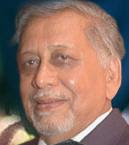"
It has now been decided that genuine altered cheques would continue to be accepted in Northeast beyond First July 2010. The new provision of RBI would be applicable only after the image-based cheque truncation system (CTS) is introduced here. At present, the cheque truncation project is being run only in the Delhi area with Chennai expected to move on stream soon.
The circular of RBI issued in the month of February2010 on prohibiting alteration and correction of cheque has caused ripple effect in society and in trade circleall over the country. As per the notification any alternation, correction and cutting of cheque would not be honoured by banks. This steps was taken as the fraudulent withdrawal of money was of late rampant in some cities of the country. As a precaution to stop fraudulent dealing such steps were to be taken from First of July 2010, on the basis of recommendation received from the working group constituted for standardization of cheque and for security measures.
The notification was interpreted by the social circle, trade circle and a few banks, as if, any alteration of a regular cheque by customers of banks will be punished . people of certain cities interpreted that if a bank customer had written ‘hundered’ instead of ‘hundred’ on a cheque, he should not just strike off the additional ‘e’ and issue the cheque. Instead, he should use a fresh leaf , or it could cost him Rs100-550. The trade circle made hue and cry and interpreted that the Reserve Bank of India (RBI) has notified banks in a recent circular not to accept cheques that have corrections or alterations in anything but the date. The intention of RBI actually was to “help banks identify and control fraudulent alterations”. A few banks interpreted the notification somewhat hastily and started informing customers about the policy change through mailers that no altered cheque would be accepted by bnaks with effect from First July 2010.
If a persons issue a cheque with corrections, he will be slapped with cheque return charges that are Rs100-250 for public sector banks and Rs350-550 for private banks. This interpretation has created panic in the mind of Bank’s customers.
“It is consumer protection that the RBI is looking at. Many a times cheques are stolen and encashed by other parties by making corrections,” said S Govindan, general manager (personal banking and operations), Union Bank of India .
Some of the bankers felt that the move is essential keeping in view the changes in the way cheques are dealt with now. “Earlier, banks used to tell people not to issue a bearer cheque and about some basic precautions. But now cheques get couriered. Also, they are deposited in drop boxes. So the possibility of them falling into the wrong hands is high.”
The RBI also wants to reduce and, if possible, eliminate transactions through cheques. “Now that daily interest rate calculation has come in, it works in your favour to keep money in your account for as long as possible. At least three days are wasted in the issuance of a cheque. Whereas netbanking is instant,” said a banker.
After getting notice from a few banks individual customers panicked. Some of them have written to RBI and trade circl represented their case against imposition of such a rule with out full scale debate. The situation became so tense that RBI had issued a clarification recently on the subject on June 22nd 2010.
We would like to assure the indivudal customers of banks residing in Northeast not to panic at all.
The notification issued during February have been wrongly interpreted and out of context. In fact the Reserve Bank of India has clarified that its directive to banks asking them not to honour cheques with alterations, will be applicable only for cheques cleared under the image-based cheque truncation system (CTS). At present, the cheque truncation project is being run only in the Delhi area with Chennai expected to move on stream soon.
The clarification paves the way for bank branches in metros like Mumbai where CTS is still not operational to accept corrected cheques. RBI's directive had created a flurry in trade circles and even among utilities that have been turning away cheques with any form of correction or alteration even if the changes were validated by the cheque drawer's signature.
In a notification RBI has clarified that its directive on prohibiting alterations/ corrections on cheques ``will be applicable only for cheques cleared under the image based Cheque Truncation System (CTS).
The directive given in February notification is not applicable to cheques cleared under other clearing arrangements such as MICR clearing,non-MICR clearing, over-the-counter collection (for cash payment), or even for direct collection of cheques outside the Clearing House arrangement.
It should be clearly understood that Cheque Truncation is a system of cheque clearing and settlement between banks based on electronic data/images or both without physical exchange of instrument. Here the cheque is scanned and electronically presented for settlement with the clearing house.
Our readers need to note that Assam is not under chque Truncation system hence the February notification is not applicable to Northeast. Currently, most of the clearing is done on the MICR system and banks often entertained cheques with alterations, be it the name of the party to whom the cheque is issued, or the date or the amount, provided the issuer of the cheques does is signature besides the correction.
In case any bank insists on the earlier stand the customers of bank can request the bankers to refer to the latest clarification of RBI vide their notification RBI2009-10/503dpss.co.chd.no2806/04.07.05/2009-10 and satisfy themselves.
__________________________________
blogcatalog
Monday, July 5, 2010
Subscribe to:
Comments (Atom)




